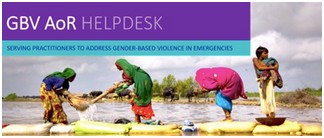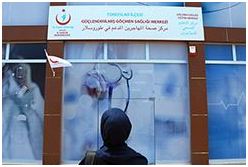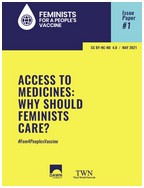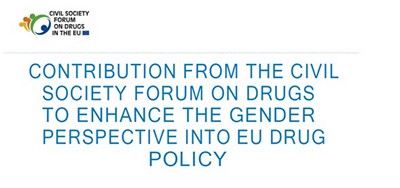Harnessing Feminist Principles & Approaches to Improve Mental Health Care for Gender-Based Violence Survivors in Humanitarian Contexts
Извор: WUNRN – 14.07.2020

Laura Martineau-Searle, GBV AoR Helpdesk Manager, introduces a new GBV AoR Helpdesk report authored by Jeanne Ward, which explores what it means to apply feminist principles to specialized mental health care for GBV survivors, and how we might reinforce these principles in GBV-related mental health and psychosocial support programming in humanitarian settings.
While the humanitarian community has widely endorsed the importance of mental health and psychosocial support (MHPSS) programming in emergencies, there is limited guidance on specialized mental health interventions for the many women and girls who experience gender-based violence (GBV).
Women and girls are at risk of multiple forms of GBV in emergencies, including sexual violence, intimate partner violence, early marriage, female genital mutilation/cutting and trafficking, all of which can have serious detrimental impacts on their mental health. While no survivor responds to victimization in the same way, many survivors may experience high levels of emotional distress related to their exposure to violence, including feelings of fear, sadness, confusion, guilt, shame or anger. Some survivors may experience prolonged periods of anxiety and depression, leading to self-harm and even suicide. Evidence suggests that the duration of exposure to GBV may exacerbate the risk of mental health problems; for example, women who are experience child sexual abuse and/or intimate partner violence are 3-4 times more likely to experience anxiety and depression in adult life.
Many of the basic principles and approaches used by GBV experts in their work with survivors in humanitarian settings are drawn from feminist theory and practice. For example, many GBV experts practice a survivor-centred approach. This is where the GBV expert treats the survivor with dignity and respect and is guided by their needs and wishes, as opposed to adopting a “one size fits all” approach. There is, however, no guidance outlining the importance of using feminist principles in MHPSS programming in emergencies, nor any guidance on what it means to apply a feminist approach. And yet, a large body of evidence from the Global North, as well as some guidance from other parts of the world, indicates the importance of applying feminist-informed approaches to mental health interventions with survivors of GBV. This learning can and should be drawn on to clarify and improve support to women and girl survivors in humanitarian settings.
Feminist-informed therapeutic interventions are critical of ‘medical model approaches’ to mental health, which often pathologize the survivor’s response to violence and treat mental distress as similar to physical illness and as something which can be controlled and/or cured with medication. Feminist-informed therapeutic interventions are, instead, premised on the belief that the psychological distress experienced by survivors cannot be understood without reference to the political contexts in which women and girls live their lives. As such, feminist-informed therapeutic interventions pay particular attention to the influence of patriarchy on violence and healing, with an understanding that the violence women and girls experience—as well as the feelings of self-blame and many other reactions that follow exposure to violence—are rooted in structural gender inequality. Feminist informed therapeutic interventions have found to be of particular value in alleviating survivor’s sense of loneliness, shame and guilt. In this sense, feminist informed therapeutic interventions can help survivors in ways that other mental health interventions cannot.
Feminist approaches to mental health care also consciously attend to the diversity of women’s personal and social identifies, in an effort to promote understanding of how social identity informs women’s expectations and behaviors, and their experiences of privilege or oppression. These identities include, for example, race, ethnicity, religion, social class, disability status and sexual orientation. When working with a survivor, applying this approach means understanding how social and cultural contexts, identity and development impact the exposure to sexual violence, the survivor’s responses to the violence, and the healing process. Recognition of context—by the provider and the survivor—must involve an understanding of multiple forms of structural violence that women experience:
“Understandings of trauma in Western psychology tend to be predicated on a privileged idea that the world is fair and just in the first place, and that the work of therapy is the work of ‘returning’ an individual to a place of peace or happiness…For people born into war, economic marginalisation, and the discriminatory norms of racism, sexism, homophobia, and xenophobia, the world itself is the stressor. This means, in turn, that activism is necessary to change the structural roots of distress, while individual or group therapies are engaged to build the capacity to manage or engage the effects of these structural stressors in everyday life.” (Jessica Horn, African Institute for Integrated Responses to Violence Against Women and HIV/AIDS)
Additional approaches include encouraging an egalitarian relationship between the survivor and the mental health provider, and ensuring a woman-valuing and self-validating process of recovery.
While these approaches are framed around specialized mental health treatment, elements of these approaches can be deployed to improve all forms of therapeutic interventions with survivors. However, it is important that all providers working directly with survivors receive sufficient training and supervision in order to ensure they do no harm. The report also argues that the lack of information from emergency settings on feminist-informed mental health interventions for GBV survivors indicates a significant need to 1) review current mental health and psychosocial practices in emergencies to better understand the extent to which they reflect and reinforce feminist-informed approaches; and 2) test and scale-up feminist-informed mental health and psychosocial interventions in emergencies.



